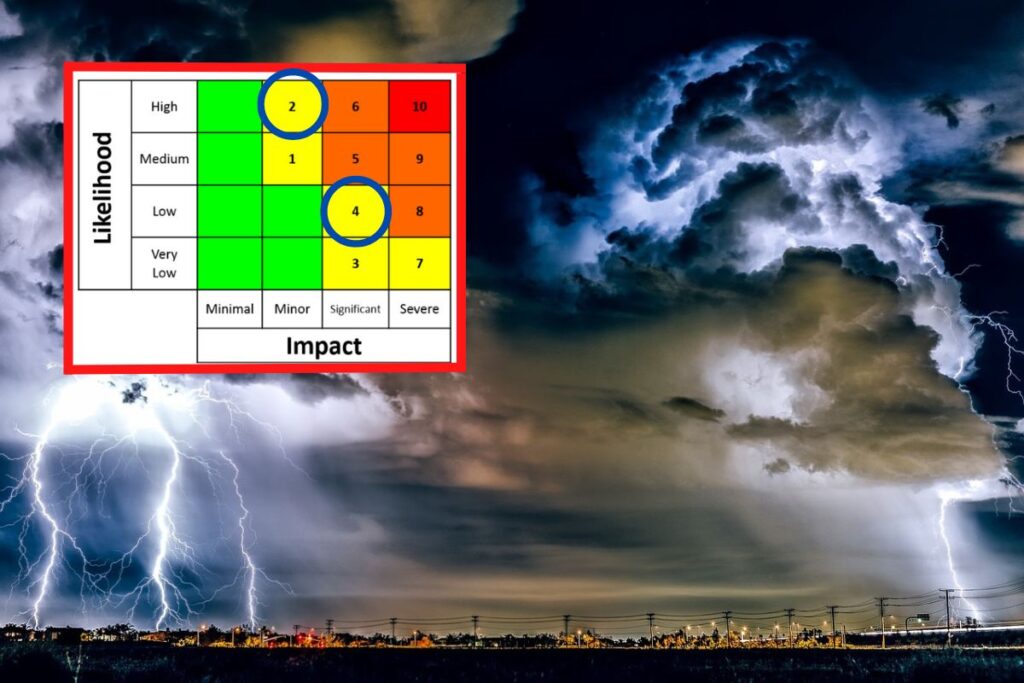The South African Weather Service has issued weather warnings for several areas for severe thunderstorms and heavy downpours today, 30 January 2023.

By: Michelle Swart
ALSO READ: Severe storm damage, FLOODING in West Rand, Johannesburg
Weather warning for severe thunderstorms
A yellow level 2 weather warning for severe thunderstorms with heavy downpours were issued.
Damaging winds are expected as well as excessive lightning and localised flooding of susceptible informal settlements and low-lying roads/areas.
Poor driving conditions can be expected due to the pooling of water on roads and reduced visibility.
Localised service disruptions are possible due to increased lightning activity.
This is expected over the following areas:
- Free State (except the extreme southwest)
- North-West
- The eastern Highveld of Mpumalanga
- The extreme southern Limpopo
- The western parts of KwaZulu-Natal.
ALSO READ: Funnel cloud spotted in the West Rand, Johannesburg
Level 4 warning for Gauteng and other areas
A yellow level 4 warning for disruptive rainfall was also issued.
This can result in localised flooding of susceptible informal settlements and low-lying roads/areas.
Poor driving conditions are expected due to pooling of water on roads, and reduced visibility.
This is expected over the following areas:
- Gauteng
- The extreme eastern parts of North-West
- The eastern parts of Free State
- The western Highveld of Mpumalanga
ALSO READ: LEVEL 4 rain warning for Gauteng: Heavy showers expected
SAFETY WHILE DRIVING IN THUNDERSTORMS
Arrive Alive has issued some tips when driving in severe weather.
- To keep a safe distance from the vehicle ahead of you, increase the three-second rule to five-six seconds.
- Slow down if it is raining and the roads are wet. Remove your foot from the accelerator and gradually reduce your speed.
- Never apply the brakes abruptly as this may cause the car to skid.
- Slow down and be prepared to move to the left shoulder if an oncoming vehicle is overtaking from the opposite direction and will not be able to do so safely.
- Only move towards the shoulder if you can see 150m ahead of you clearly. Keep in mind that pedestrians may be walking on the shoulder to avoid mud on the road’s surface.
- Be cautious of oil patches. Do not slam on the brakes; instead, steer through. Patches will be small in most cases.
- Before taking a bend, especially a sharp bend, always shift into a lower gear. As you approach the bend, your speed should be at its slowest, and both hands should be on the steering wheel. When driving around a bend, this slow in/fast out technique gives you the most control.
- Double your normal following distance from 3 seconds to 6 seconds to increase your space cushion.
- Switch on your headlights.
- Other vehicles in the rear and in blind spots should be avoided because they are difficult to see through rain-splattered windows.




































































